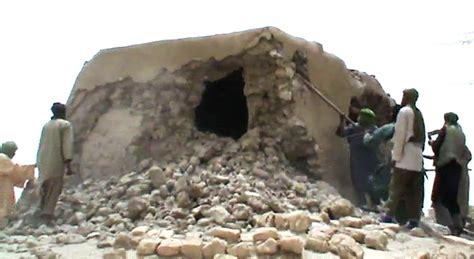
Mali: The attack against the civilian boat ” Tombouctou” constitutes a war crime.
On the morning of 7 September 2023, the boat “Tombouctou”, belonging to the Malian shipping company (Comanav) and operating on the Mopti-Gao route, was attacked by rocket fire from an unidentified armed men near Gourma-Rharous in the Tombouctou region.
In a press release issued on 7 September, the Malian government reported a provisional toll of “49 civilians killed, injuries and material damage to the boat…”. The injured were admitted to a hospital in Gao. According to information gathered by FIDH, this figure could change as some families are still without news of their loved ones. One witness said: “I have 6 members of my family on board this boat, and since the attack, we haven’t been able to contact them, I’m worried, I hope to find them…”.
“This boat carries hundreds of passengers. When the first rocket was fired, many passengers panicked and didn’t think twice, jumping into the water even though some didn’t even know how to swim. This is why the number of victims officially announced is underestimated; the death toll could be much higher, but we’ll know more in the coming days…”, another survivor told FIDH.
On the morning of 8 September, the al-Qaeda affiliated Groupe de soutien à l’Islam et aux musulmans ( JNIM) reportedly claimed responsibility for the attack on the boat and the attack on the Malian armed forces (FAMa) camp in Bamba, in the Gao region, on 7 September. According to information provided by the Malian authorities, 15 Malian soldiers were killed in this second attack on the same day. On 8 September, the Public Prosecutor of the Specialised Judicial Unit for Combating Terrorism and Transnational Organised Crime announced “the opening of an investigation into these criminal acts (…) with a view to identifying, arresting, prosecuting and bringing to justice the perpetrators, co-perpetrators and accomplices of these criminal acts”.
Civilians, first victims of the conflict
“Civilians are still paying a heavy price in this deadly conflict. We insist that a military response alone is not enough. A genuine and lasting resolution to the conflict requires both concrete judicial responses and global policies,” said Drissa Traoré, Secretary General of the FIDH. “We welcome the opening of an investigation by the Malian judicial authorities and call for it to be carried out swiftly. To put an end to the cycle of violence and impunity, it is imperative to bring investigations into serious human rights violations to a conclusion.”
These serious violations are being perpetrated at a time when MINUSMA (the United Nations Multidimensional Integrated Stabilisation Mission in Mali) is withdrawing from the country. FIDH expresses its deep concern as attacks multiply at a time when the Peace and Reconciliation Agreement resulting from the Algiers process has reached an impasse. In parallel with the handover of the MINUSMA camps to the Malian army, in particular the Ber camp in the Tombouctou region on 13 August, several clashes have taken place between armed/terrorist groups and the Malian army. On 8 September, a kamikaze attack claimed by the JNIM targeted the FAMa camp in Gao. Tensions are also at their highest in north-east Mali. A Malian Air Force plane was shot down by the CMA (former Tuareg rebels of the Azawad Coordination).
The humanitarian situation for civilians also keeps deteriorating. The city of Tombouctou is experiencing difficulties in obtaining supplies of fuel and basic necessities due to the blockade imposed on the city by armed jihadist groups.
“The needs and security of civilian populations must be at the heart of national and international strategies. The Malian authorities have the primary responsibility for this. They must intensify their efforts to concretely protect human rights and the fight against impunity,” said Mabassa Fall, FIDH Representative to the African Union. “In the current particularly tense context, the international community, Mali’s international partners, and the Malian authorities must at the very least agree on a mechanism to monitor the human rights situation, protect civilians, and document the damage caused to civilians.”
Source » fidh.org





